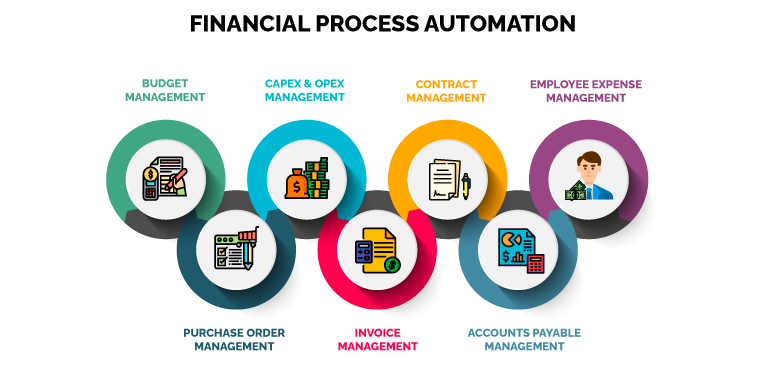We’re living in an era where digital transformation appears to be rapidly evolving virtually every industry, and the rapid emergence of advanced technologies like artificial intelligence and process automation may finally gain the opportunity to carry a lagging financial sector into the 21st Century.


Image Source: Quixy)
The world of finance holds significant potential when it comes to process optimisation and integration, and digital transformation can be key when it comes to financial departments streamlining operations, limiting instances of human error, and allocating resources more strategically.
Factors like regulatory headwinds, budgetary constraints, legacy systems, and oblique transformation strategies have threatened to hinder the digitisation of the finance sector, but we don’t have to look too far to see major industry success stories.
One successful case can be found in PayPal, which spent recent years evolving from a niche online payment system to a key player in the growth of open banking.
With over 428 million active users worldwide and a total payment volume of $337 billion, PayPal has become a force to be reckoned with in finance. The company has also been busy making strategic acquisitions of payment platforms like Venmo and Braintree to bolster its services further.
While PayPal is a fintech success story, other more traditional institutions have struggled to make the same headway in embracing emerging technologies. But could the rise of automation technologies pave the way for a more widespread industry push towards digital transformation?
Barriers to Digital Transformation
While the rise of PayPal can be seen as a great example of a financial services firm fully embracing new technologies, the rise of digital banking services has paved the way for the rise of digital-only banks.


(Image Source: Pexels)
These challenger banks and digital-only financial services have caught more traditional institutions flat-footed, and the alternative services offered by these new market players have often been better aligned with customer needs in a more accessible and affordable way.
Today, traditional financial institutions are required to play catch up in offering the same level of personalised services that meet customer needs. This requires out-innovating digital-only rivals to tailor products more effectively and automate services through AI analysis of customer spending patterns.
Another challenge stems from monetising data. Through data science algorithms, traditional banks can seek out patterns in how customers purchase and use their products and services. This can help to detect the underlying requirements of customers in a way that can shape future marketing campaigns.
McKinsey data suggests that data-driven marketing is capable of improving ROI by between 15% and 20%, but would require institutions to abandon legacy systems to compete with the innovative tactics of challenger banks directly.
Digital transformation has often been interpreted as a threat to traditional finance due to the volume of challenger banks and digital-only financial services entering the market. Still, the reality is that it offers an excellent opportunity for all players to upgrade legacy systems and supercharge the quality of their services.
The Most Valuable Currency in Finance is Data
Data is the new gold standard in the finance industry, and digital transformation stands as an opportunity to unlock its potential.
Advanced data analytics and AI solutions can help to empower financial institutions to discover quality insights into customer behaviour, market trends, and risk profiles. This real-time analysis can help drive more impactful decisions and accurately weigh up opportunities and risks within the industry.
One of the biggest innovations that can help bring digital transformation to financial institutions is artificial intelligence.
“ChatGPT, and generative AI in general, has immense potential at multiple strategic and operational levels of financial services,” explains Patrice Latinne, data and analytics leader at EY Belgium. “Generative AI allows you to go much further in customer communication with higher added value without much technical knowledge.”
Most importantly, the technology allows us to automate various background tasks in an instant, even while the conversation with the customer is in progress. Drawing up a contract, identifying the warranty or calculating the right commercial discount, while measuring customer satisfaction by reading their face and listening to their voice.”
Embracing the Rise of RPA
One of the biggest tools that can help to leverage a sustainable future for financial institutions is through robotic process automation (RPA). For banks, insurance companies, and just about any other financial institution, RPA can reduce task handling times, automate end-to-end processes, and improve the time to market for new products and services.
This can be a particular boost when it comes to custom financial software development, and today digital transformation services are already capable of leveraging RPA to reduce costs for institutions by automating tasks and ensuring efficiency throughout nuanced financial processes.
It’s for this reason that RPA has become one of the most important areas of investment for financial institutions. Gartner data suggests that already 80% of financial leaders have implemented, or are planning to implement robotic process automation over the coming years.
Effective Automation Throughout Institutions
In uniting artificial intelligence and RPA, organisations have the power to simplify workflows and enhance efficiency across many areas of their business. For financial organisations, these enhancements can be particularly visible in the following areas:
- Data management: Through AI and RPA, it’s possible to automate data extraction, enhance validation, and cleansing, and guarantee accurate data in real time for flawless decision-making without the dangers of digital waste.
- Fraud detection: Artificial intelligence can also accurately analyse big data to identify patterns and anomalies, while RPA has the power to investigate and resolve prospective fraud cases before they can trigger damaging financial losses.
- Customer service: Through the use of LLMs like chatbots, RPA can take charge of customer inquiries to reduce response times and help employees focus on more complex challenges.
- Regulation: Finally, RPA can bring automation to compliance in the form of report generation and data validation. This helps firms to follow regulations more closely and limit the risk of incurring fines or penalties.
The implementation of robotic process automation services can be the cornerstone of a digital transformation initiative for financial institutions, and a highly effective cost-saving measure thanks to the levels of efficiency afforded by automated models.
The Digital Metamorphosis
Digital transformation may be a key component in the advancement of many industries, but with the suite of benefits it can bring to financial institutions, the technology has the potential to leverage a metamorphosis for the legacy systems of yesteryear.
The unity of AI and RPA paves the way for highly personalised financial plans, stronger customer relationships, and efficient debt collection.
We may live in a world that’s populated by an increasing number of challenger banks, but through automation services, the traditional financial players may finally be capable of overhauling their barriers to adoption and going toe-to-toe with their new competitors in the digital space.

